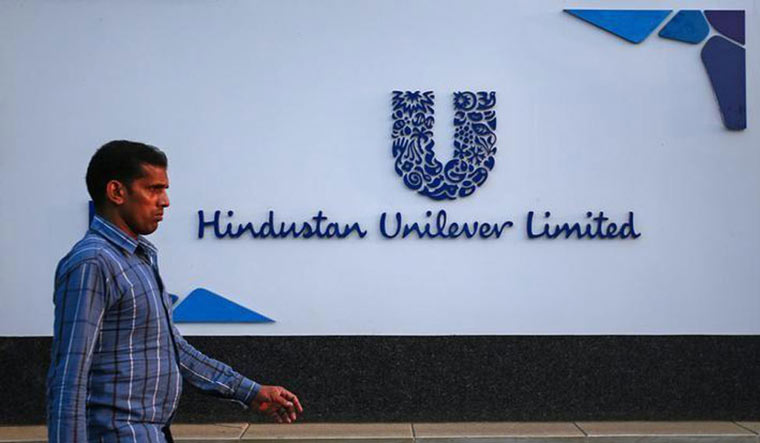Hindustan Unilever, the largest fast-moving consumer goods maker in the country, says the recent surge in COVID-19 cases and restrictions imposed by various states to control it, has begun to have a little impact on consumption—though things are unlikely to be as bad as the April-June quarter of 2020, when there was a nationwide lockdown.
You are seeing a different kind of restrictions. Something like Maharashtra has got a bit more stringent with only essentials allowed. We have also seen a situation where only a few hours of delivery is possible. Even general trade stores are open for only four-five hours says Srinivas Phatak, the chief financial officer of HUL.
“As you go across different parts of the country, the nature of the restrictions on people, physical operations and movement is different, which in a manner could have an impact on some of our categories. In the last two weeks, we have seen consumption coming in a little slower in some cases, people not being able to buy in the others and more importantly, it's just people not being able to physically move and get what they need," he said.
Fast-moving consumer goods companies, especially those in categories like hygiene, personal care and nutrition, have seen strong growth over the last couple of quarters driven by strong demand as the country began unlocking after the strict lockdowns last year.
In the January-March quarter, HUL’s consolidated net profit surged 45 per cent from a year ago to Rs 2,190 crore from Rs 1,512 crore. The fourth-quarter revenue of the maker of Bru Coffee and Surf detergent rose 35 per cent year-on-year to Rs 12,220 crore from Rs 9,055 crore.
It must be noted that the acquisition of Glaxo SmithKline Consumer’s nutrition business, comprising Horlicks and Boost, was completed only in April 2020 and so didn’t reflect in the earnings in the year-ago quarter.
The consumer goods maker saw a volume growth (number of packs sold) of 16 per cent in the January-March quarter.
Health, hygiene and nutrition forming 80 per cent of the business grew in double-digits for the third consecutive quarter, while discretionary and out-of-home categories improved sequentially, the company said.
Sanjiv Mehta, the chairman and MD of HUL said that rural growth had held up for now. Also, their factories were fully operational currently and the supply chains were also operating. However, some demand impact is likely due to mobility-related issues in the last two weeks, he added.
The company has one of the deepest sales and distribution presence in the FMCG space. Over the last year, the company has looked to further this presence, especially continuing to expand Project Shakti, its rural marketing initiative.
“The very potent weapon that we have is 136,000 Shakti Ammas. They cover 100,000 villages. Last year, we increased the number of Shakti Ammas by about 16,000 and we intend to add a similar number of Shakti Ammas this year,” Mehta said.
In the last year, as digital transaction volume shot up, the company saw a lot of acceptance for its Shikhar app, a platform for its retailers to place orders, said Mehta.
Separately, the company is also strengthening its offerings on e-commerce channels, given that platforms like Amazon and Flipkart among others have seen strong growth through the pandemic.
“One of our big focus area is designed for channels. We are bringing in innovations, we are bringing in pack sizes, which are fit and relevant for the e-commerce channel. That is a big thrust area,” said Mehta.
HUL saw a 19 per cent growth in the e-commerce business in the March quarter. The company has also set up a team that will particularly focus on mass-prestige brands and e-commerce in the beauty and personal care division.
Mehta said HUL intends to facilitate the COVID-19 vaccination of not just the company’s employees and their families, but all the people who are in its ecosystem, which is about 3 lakh people. Already, 90 per cent of its employees who are currently eligible have been vaccinated, Mehta added.





